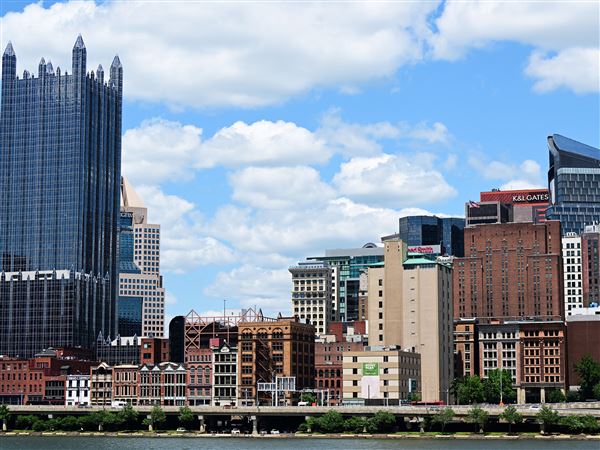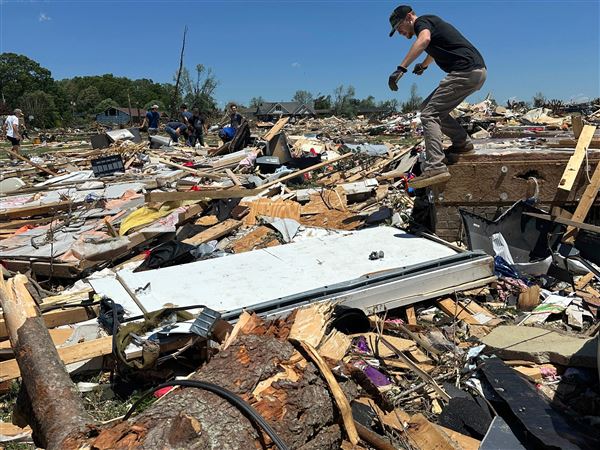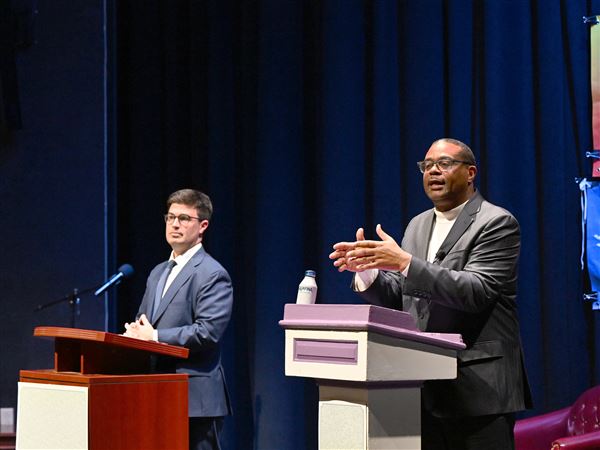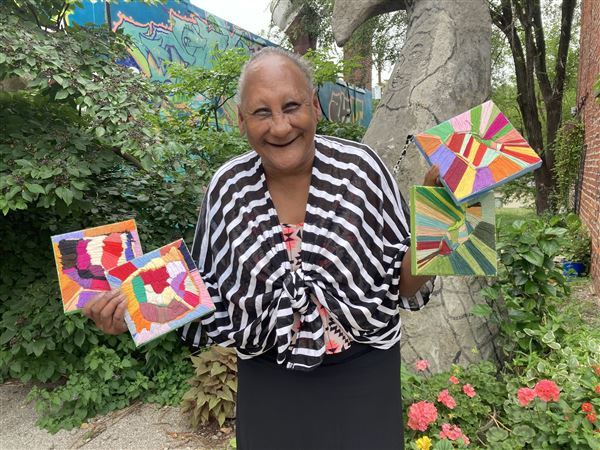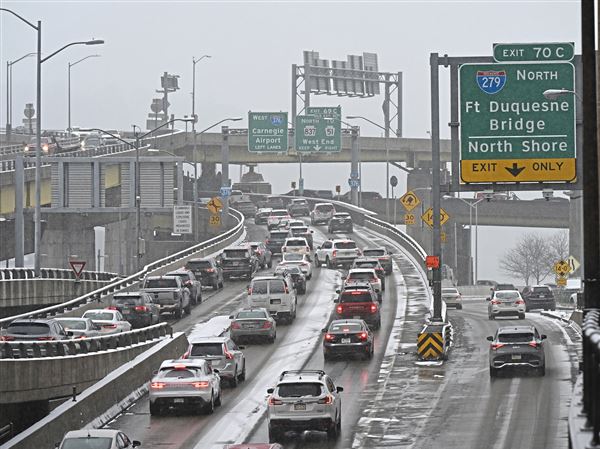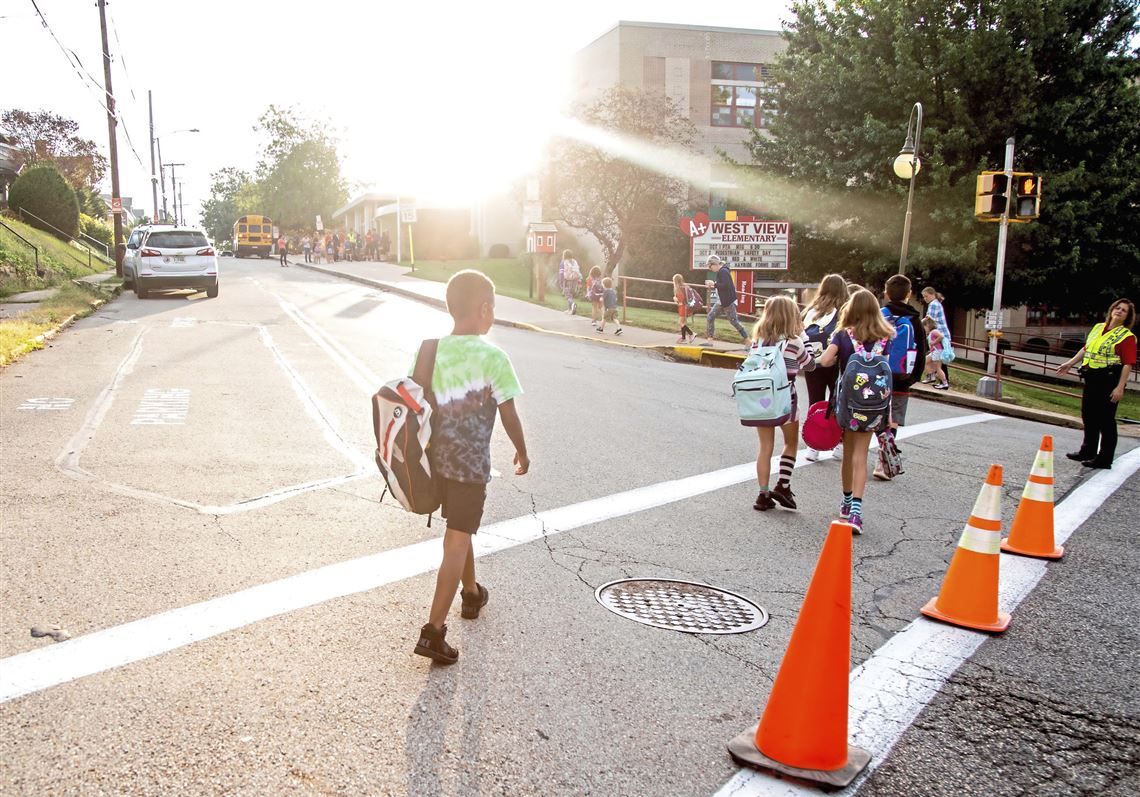Children should be able to walk or bike to school safely, but that is not possible in some parts of Pittsburgh because of crumbling infrastructure, unsafe roadways and criminal activity.
In an effort to change that, the city’s Department of Mobility and Infrastructure on Monday announced the launch of the federally funded Safe Routes to School program.
Safe Routes to School, which was established in 2005, assists cities and school districts with infrastructure improvements and includes programming to develop safer spaces and better habits for students.
“The mission of Safe Routes to School Pittsburgh is to increase the number of students walking, biking and being transported to and from school,” Harriet Jackson, the city’s Safe Routes to School coordinator, said at a press conference outside Faison K-5 in Homewood. “We plan to look at it through education, encouragement and safety improvements.”
Faison K-5 is one of four Pittsburgh-area schools selected to participate in the city’s inaugural Safe Routes to School program. The others include Pittsburgh Arlington PreK-5, King K-8 and Propel Schools — Hazelwood. City officials said they hope to expand the program to more schools next year.
Russell Patterson, the principal at Faison K-5, said the right to walk to school safely has been stripped away from his students and children in other Pittsburgh neighborhoods.
“Our students deserve to be able to walk to school and not have to encounter debris, such as broken glass, drug paraphernalia and litter,” Mr. Patterson said. “They should not have to encounter sidewalks that are so damaged that the students cannot walk on them or they are nonexistent. They should not have to encounter drug deals; they should not have to encounter [people] soliciting prostitutes;, they should not have to encounter gang activity or turf wars.”
Mr. Patterson said the program was a step in helping take back the community.
The city received about $1.2 million in federal funding for the program over the next three years, according to Karina Ricks, director of the Department of Mobility and Infrastructure.
Ms. Ricks said the city will look to make improvements to sidewalks, crosswalks and lighting as well as traffic calming measures around schools through the program.
Although Pittsburgh Public Schools students are not taking classes in person until at least November because of COVID-19, program resources, including events and activities, can be found on the Safe Routes to School page on the Department of Mobility and Infrastructure website.
Speaking at the news conference, state Rep. Ed Gainey, D-Lincoln-Lemington, said school is a positive environment for children, but work must be done to make the travel to and from it a safer experience.
“While we have this remote learning right now we have a beautiful opportunity to ensure that our streets are safe,” Mr. Gainey said. “When we do that for the kids, it’s not just a victory for the kids. It’s a victory for the parents, it’s a victory for the school district and a victory for the neighborhood.”
Andrew Goldstein: agoldstein@post-gazette.com.
First Published: September 21, 2020, 11:12 p.m.
